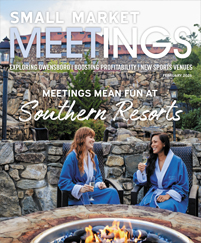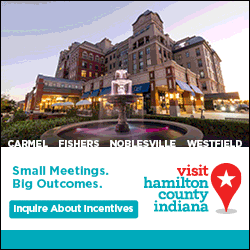Rachel Crick recently spoke with Alex Springberg of GSF Events on planning events for nonprofit organizations.
Alex Springberg is the director of business development and special events at GSF Events, a Seattle-based event company that focuses exclusively on events for nonprofit organizations. She graduated from University of Arizona with a bachelor’s degree in retailing and consumer science in 2017 and held several event planning positions before landing a job at GSF Events, where she has worked for over four years.
Q: Can you tell me about your journey at GSF Events?
A: I got my job at GSF Events as an event coordinator. It was a dream come true because I am able to work in events with nonprofit organizations, and it is super different day to day. Being able to work with multiple organizations is awesome because I am super passionate about nonprofits. That was about four-and-a-half years ago, and slowly I started working on more events with my team. What’s really exciting is it’s a woman-owned business, and it’s the first time I’ve ever worked for a woman-owned business. I wanted to share with that, so it became a natural progression from event coordinator to event manager. Now I’m director of business development, and I help spread the word and grow our business.
Q: Do you have any advice for the newest generation of young professionals when it comes to landing their dream event-planning job?
A: For me, it took me a long time to find a role that I love. I was spending so much time applying to jobs, networking, using my resources and going to different events, but I found what I didn’t like. It’s about trying different jobs and not being afraid to say, “I tried that and I didn’t love it, but I’m getting closer.” You should look at what you love to do in your daily life; I had never thought about turning it into a job before. I also think I had to be honest with myself and saying, “OK, I love doing things differently day to day; I like challenges; I like being busy. But I don’t love doing social media or that piece of it.” Being honest with my skill set made me really happy in my role. Being able to share what I could do worked out for me.
Q: Does the newest generation of event planners face any challenges when it comes to finding a position that suits them and their vision for their career?
A: One thing people who are interested in event planning don’t realize is there’s a statistic out there that says it’s one of the top 10 most stressful jobs you can have. It’s next to jobs like medical dispatchers. It sounds silly to say, but it’s so stressful because you’re handling so many tasks at once. It’s hard for young professionals to realize the time they will spend, the hours they have to keep. It’s not a typical nine-to-five, so when they’re looking into the job they need to be open and honest with themselves and their employers, and say, “this is what I will do; this is what I won’t do.” They’ll need to start preparing themselves for what reality will look like.
Q: What about advantages?
A: This new workforce is really resilient and is able to advocate for what’s important to them. There’s been a big change of awareness with work-life balance and making sure you’re not burning yourself out. With my organization, as we’ve brought on newer younger folks, we’ve found ways to advocate for our needs. On weeks when I am working six days, we do flex hours to make up for that. I feel like the younger generation is better at saying, “I want to prioritize work-life balance and mental health.” When you find a company that respects those wishes, it makes you happier in the long run. You can ask, “How many hours should I expect to work during busy season? What do you do to help combat burnout?” People didn’t always ask about that in interviews. Now, it’s also about “what can the company do for me as I’m doing all this work for them?”
Q: What should the newest generation of planners know if they’re considering a job in nonprofit events?
A: I think one of the biggest things is the reason why we’re there; it’s being able to craft an event focused around an organization’s mission. Being able to share with those donors that are attending the reason why we’ve gathered, to support this organization and whatever they’re raising money for. And you have to do it in a creative way because you have a very limited budget. That’s one of the best parts of the job: I have to think creatively all the time and ask myself, “How can I spend money to yield a successful result for an organization?” When you’re working in nonprofits, there’s a financial need, and that can get stressful because you’re so focused on making the nonprofit hit their fundraising goals and succeed. But I have to remember that my job is making an amazing event.












